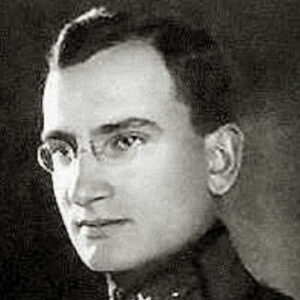Herman Potonik was a Slovenian rocket engineer who is best known for his groundbreaking contributions to space exploration. He was the youngest of five children born to Slovene parents in Pula. His father fought in the Austrian army as a naval commander and doctor, but he died when Herman was only two years old. His mother relocated the family to Maribor, where he completed his basic education before enrolling in military institutions. He served as a first lieutenant in a railway corps during the First World War, and was described as determined, confident, serious, and striving. He completed his engineering and electro-technical studies in Vienna with a focus on rocket technology after leaving the service owing to illness. Following that, he did considerable research on rocket science and space technology, subsequently expressing his findings and futuristic vision in his only literary work, which he authored on his deathbed. His book outlined the first comprehensive plan for human space exploration, including ground-breaking concepts such as geostationary satellites and manned space stations. With each new extraterrestrial achievement in the modern-day, his creative tactics, theories, and many prophecies gain more credence. Herman Potocnik is known today as a pioneer of astronautics, a visionary with exceptional technological imagination.
Childhood and Adolescence
Herman Potonik was born on December 22, 1892, in the Austria-Hungarian port of Pula in southern Istria, to Joef, a doctor and high navy officer in the Austro-Hungarian Navy harbour of Pula, and Minka, a descendant of Czech immigrants.
His ancestors were from Lower Styria in Austria-Hungary and were of Slovene ethnicity. Adolf and Gustav were his brothers, and Franika was his sister.
His father fought in the second Battle of Vis in 1866 and eventually served as an Austro-Hungarian Army commander. His father died in 1894, and the family relocated to Maribor.
He spent most of his boyhood in Maribor and, according to legend, Vitanje, where his mother was born. He attended military secondary schools at Fischau and Hranice (Mährisch-Weißkirchen) in Moravia after receiving his elementary education from local institutions in Maribor.
Heinrich, Herman’s uncle, was a Major-General in the Austrian Army and may have aided Herman’s education in the Austrian military academies.
He attended the technical military academy in Mödling, Lower Austria (Niederösterreich), from 1910 to 1913, and graduated as an engineers second lieutenant with a specialization in railway and bridge construction.
Career of Herman Potočnik
Herman Potonik served as a bridge and railway expert during the First World War, while stationed in Galicia, Serbia, and Bosnia.
He was promoted to First Lieutenant and commissioned to the southwestern front of the Soa battlefield in 1915.
He retired from the Austrian military with the rank of Captain in 1919 after contracting incurable TB of the lungs during the war.
He then went to Vienna’s University of Technology, where he studied machinery and electric technology and graduated as an engineer in 1925. Following his PhD in engineering, he focused on rocket science and became entirely absorbed in space technology research.
Under the pseudonym Noordung, Herman Potonik wrote a book titled “The Problem of Space Travel” in 1929. The book was considerably ahead of its time, and it suggested a number of solutions for humanity to live in space. It regarded space flight as a very real technological prospect, not just a pipe dream.
Major Projects of Herman Potočnik
His book Das Problem der Befahrung des Weltraums – der Raketen-Motor (The Problem of Space Travel – The Rocket Motor), published in 1929, was crucial in the development of rocket technology. The book outlined a strategy for establishing a long-term human presence in space. It envisioned a detailed architecture for a space station and explained how the unique circumstances of space could be beneficial to scientific research. He was the first to understand the importance of the geostationary orbit, on which the station would orbit the Earth, and he was also the first to calculate the orbit in detail.
Personal History and Legacy
Herman Potonik chose to remain a bachelor due to his severe illness and lived in Vienna with his brother, Adolf.
His sickness developed swiftly while he was on the point of poverty. On his deathbed, he penned his one and only book.
Herman Potonik died of pneumonia in Vienna, Austria, on August 27, 1929, at the age of 36, and was buried there.
He is commemorated by the asteroid 19612 Noordung, which was found in 1999 at the rni Vrh Observatory.
In Vitanje, Slovenia, the Herman Potonik Noordung Memorial Centre (HPNMC) was completed in 2006.
Estimated net worth
The estimated net worth of Herman Potočnik is unknown.


